Pediatric Rheumatology Fellowship
Training the future clinical and academic leaders in rheumatology.
Karen Brandt Onel, MD, Chair, Division of Pediatric Rheumatology
Alexa B. Adams, MD, Program Director
Flaisa Roberts, Rheumatology Fellowship Program Coordinator
The mission of the Pediatric Rheumatology Fellowship program is to train excellent physicians skilled in delivering comprehensive care to pediatric patients with rheumatic and musculoskeletal disorders, while fostering life-long learning and practice improvement and providing clinical and research experiences in preparation for successful academic careers.
The HSS Difference
At HSS, advancing rheumatology research, care and education is central to our institution. HSS is the world’s leading academic medical center focused on musculoskeletal health and our purpose is to help people get back to what they need and love to do better than any other place in the world. Our mission is to provide the highest quality patient care, improve mobility and enhance the quality of life for all. This also includes advancing the science of orthopedic surgery, rheumatology and their related disciplines through research and education. Our vision is to lead the world as the most innovative source of medical care, the premier research institution and the most trusted educators in the fields of orthopedics, rheumatology and their related disciplines.
HSS is committed to providing high-quality care and skilled, compassionate, reliable service to our community in a safe and healing environment. We value diversity and inclusion, excellence, gratitude, innovation, passion, and teamwork.
Our Institution
Founded in 1863, HSS is the oldest existing orthopedic hospital in the United States. The adult rheumatology fellowship was established in 1944 and the pediatric rheumatology fellowship in 1990. The HSS pediatric rheumatology fellowship program benefits from unique integration and collaboration with the NYPH Weill Cornell Department of Pediatrics, the HSS Lerner Children's Pavilion and associated pediatric fellowship programs. These include:
HSS boasts the highest caliber orthopedists, physiatrists, sports medicine physicians, and radiologists who are experts in musculoskeletal imaging, and endocrinologists who are leading clinical and research voices in metabolic bone diseases. Furthermore, we have nationally recognized patient outreach programs led by award-winning nurses and social workers. It is against this backdrop of interdisciplinary excellence, scientific curiosity, and educational programming that our fellows learn to manage complex pediatric rheumatologic issues.
Our fellows care for outpatients with pediatric rheumatic and musculoskeletal disease in the context of this multidisciplinary and interprofessional excellence at HSS. In addition, our fellows benefit from rich educational and inpatient clinical experiences at NewYork-Presbyterian / Weill Cornell Pediatrics.

NewYork-Presbyterian Hospital (NYPH), consistently named one of the top hospitals in the country, is an 800-bed tertiary care medical center with an ethnically and socioeconomically diverse patient population. This is where the bulk of our inpatient and consult experience occurs. NYPH Department of Pediatrics, including world renowned clinical and research faculty, makes this a rich and rewarding learning environment for our fellows.

Gale and Ira Drukier Institute for Children’s Health at Weill Cornell Medicine is a leading center for patient-centered research, under the leadership of pediatric rheumatologist and research scientist, Dr. Virginia Pascual.

Memorial Sloan Kettering Cancer Center is a premier institution for cancer care, where the leading edge of cancer research happens. MSKCC provides a venue for fellows to engage with some of the leaders in the field.

The Rockefeller University is the first biomedical research center in the US, established in 1906. It is a bedrock of scientific discovery. Rockefeller scientists have won a collective 26 Nobel Prizes and 25 Lasker Awards. Fellows interested in basic science research can have opportunities to work with scientists of the highest caliber.
Pediatric Rheumatology Faculty
HSS Pediatric rheumatology faculty are dedicated to providing the best possible training experience for fellows. Our faculty provide a robust training program in an environment of inquiry, and draw from experiences that enrich the fellowship in different ways.

Approach to Education
HSS welcomes one to two first-year pediatric rheumatology fellows each year. We cultivate a collaborative culture and appreciate the perspectives each member of our team brings to the program. By applying various educational frameworks, we help our fellows develop a thorough understanding of pediatric rheumatology along with the skills and attitudes that will help them provide excellent clinical care and advance our field as pediatric rheumatologists.
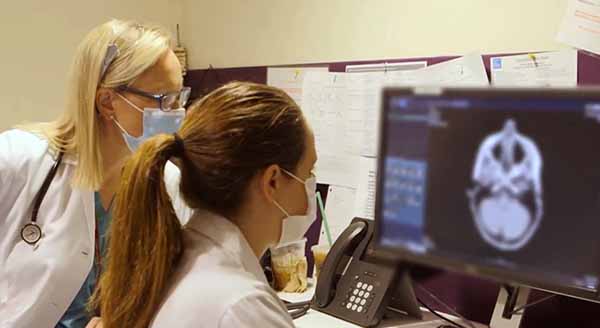
Clinical Experiences
Our fellowship offers extensive clinical experience in outpatient pediatric rheumatology at HSS. This includes outpatient experience in caring for patients in the HSS pediatric infusion center. The bulk of our inpatient pediatric rheumatology care and consultations occur at the NYPH Cornell Department of Pediatrics.
Outpatient Experiences
Each fellow sees outpatients in pediatric rheumatology continuity clinic one full day per week and co manages patients in pediatric rheumatology attending practices. Fellows learn from expert clinicians how best to evaluate patients presenting with the wide range of conditions seen in outpatient pediatric rheumatology practice.
Inpatient Experiences
Pediatric rheumatology consultations are provided at NYPH Weill Cornell Department of Pediatrics inpatient units, pediatric emergency room and intensive care units. A wide range of diagnoses are represented on the inpatient/consult services. Pediatric inpatients are cared for in close clinical collaboration with the pediatric services at NYPH Weill Cornell Department of Pediatrics. Inpatient pediatric rheumatology consultations are also provided at Memorial Sloan Kettering Cancer Center. Diverse ethnicities, nationalities, and socioeconomic contexts are represented in our patient population. Patients seen on the consult service frequently follow up with our fellows for ongoing outpatient care.
Research Experiences
Opportunities for fellow research span a range of disciplines and topics, including basic, translational and clinical research. Fellows in their 2nd and 3rd years of training devote 60-70% of their effort to a unique research project.
Fellows may choose research mentors and participate in research projects at HSS, NYPH Weill Cornell, or the surrounding institutions. Program leadership and pediatric rheumatology research faculty participate in advising fellows on their research plans and identifying and optimizing mentorship.
Each fellow's research progress is overseen by an individualized Scholarly Oversight Committee in line with the American Board of Pediatrics requirement for scholarly activity. Additionally, options for advanced degrees may be available.
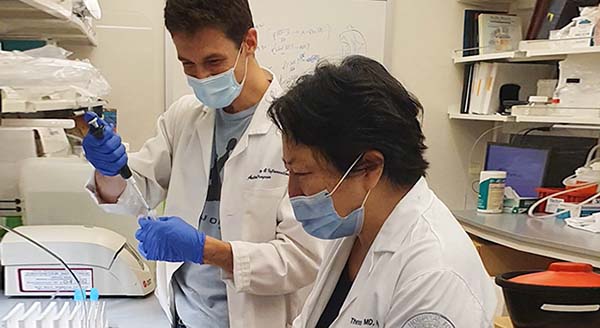
View recent publications from our fellows
Gofshteyn J, Mansfield L, Spitznagle J, Balasubramanian P, Cardenas J, Miller T, Gu J, Wang X, Punaro M, Fuller J, Nassi L, Stewart K, Ohouo M, Stagnar C, Baisch J, Walters L, Wang Y, Yan H, Rinchai D, Chaussabel D, Caielli S, Hong S, Onel K, Wright T, Pascual V. Juvenile dermatomyositis disease activity is associated with the expansion of blood B and T-cell memory subsets lacking follicular markers. Arthritis Rheumatol. 2023 Jan 17. doi: 10.1002/art.42446. Epub ahead of print. PMID: 36648920.
Pandya J, Taber S. Hereditary Fibrosing Poikiloderma with Tendon Contractures, Myopathy, and Pulmonary Fibrosis (POIKTMP) in a 4-Year-Old with a History of Anti-Synthetase Syndrome. Grand Rounds from HSS: Management of Complex Cases. Volume 11, Issue 3. November 2022.
Fennell J, Onel K. Chilblains-Like Lesions in Pediatric Patients: A Review of Their Epidemiology, Etiology, Outcomes, and Treatment. Front Pediatr. 2022 Jun 23;10:904616. doi: 10.3389/fped.2022.904616. PMID: 35813389; PMCID: PMC9259963.
Soulsby WD, Balmuri N, Cooley V, Gerber LM, Lawson E, Goodman S, Onel K, Mehta B; CARRA Registry Investigators. Social determinants of health influence disease activity and functional disability in Polyarticular Juvenile Idiopathic Arthritis. Pediatr Rheumatol Online J. 2022 Mar 7;20(1):18. doi: 10.1186/s12969-022-00676-9. PMID: 35255941; PMCID: PMC8903717.
Robinson L, Taber S. Kikuchi-Fujimoto Disease in a 6-Year-Old Boy with a History of Macrophage Activation Syndrome", Grand Rounds from HSS: Management of Complex Cases. Vol 10, Issue 2, November 2021.
Balmuri N, Soulsby WD, Cooley V, Gerber L, Lawson E, Goodman S, Onel K, Mehta B; CARRA Registry Investigators,. Community poverty level influences time to first pediatric rheumatology appointment in Polyarticular Juvenile Idiopathic Arthritis. Pediatr Rheumatol Online J. 2021 Aug 14;19(1):122. doi: 10.1186/s12969-021-00610-5. PMID: 34391453; PMCID: PMC8364108.
Sim JH, Ambler WG, Sollohub IF, Howlader MJ, Li TM, Lee HJ, Lu TT. Immune Cell-Stromal Circuitry in Lupus Photosensitivity. J Immunol. 2021 Jan 15;206(2):302-309. doi: 10.4049/jimmunol.2000905. PMID: 33397744; PMCID: PMC7977625.
Ambler WG, Nanda K, Onel KB, Shenoi S. Refractory systemic onset juvenile idiopathic arthritis: current challenges and future perspectives. Ann Med. 2022 Dec;54(1):1839-1850. doi: 10.1080/07853890.2022.2095431. PMID: 35786149; PMCID: PMC9258439.
Ambler W, Santambrogio L, Lu TT. Advances in understanding and examining lymphatic function: relevance for understanding autoimmunity. Curr Opin Rheumatol. 2022 Mar 1;34(2):133-138. doi: 10.1097/BOR.0000000000000864. PMID: 34954700.
Sevim E, Siddique S, Chalasani MLS, Chyou S, Shipman WD, O'Shea O, Harp J, Alpan O, Zuily S, Lu TT, Erkan D. Mammalian Target of Rapamycin Pathway Assessment in Antiphospholipid Antibody-Positive Patients with Livedo. J Rheumatol. 2022 Sep;49(9):1026-1030. doi: 10.3899/jrheum.220049. Epub 2022 Jun 1. PMID: 35649551.
Trachtman R, Murray E, Wang CM, Szymonifka J, Toussi SS, Walters H, Nellis ME, Onel KB, Mandl LA. Procalcitonin Differs in Children With Infection and Children With Disease Flares in Juvenile Idiopathic Arthritis. J Clin Rheumatol. 2021 Apr 1;27(3):87-91. doi: 10.1097/RHU.0000000000001170. PMID: 31693652.
Sim JH, Ambler WG, Sollohub IF, Howlader MJ, Li TM, Lee HJ, Lu TT. Immune Cell-Stromal Circuitry in Lupus Photosensitivity. J Immunol. 2021 Jan 15;206(2):302-309. doi: 10.4049/jimmunol.2000905. PMID: 33397744; PMCID: PMC7977625.
Balmuri N, Onel KB. Glitches in the utilization of telehealth in pediatric rheumatology patients during the COVID-19 pandemic. Pediatr Rheumatol Online J. 2020 Oct 15;18(1):78. doi: 10.1186/s12969-020-00477-y. PMID: 33059714; PMCID: PMC7558240.
Saad, N., Onel, K. Overview of Juvenile Idiopathic Arthritis. Open Ortho J., 2020, Volume 14, pp 101-109.
Trachtman R, Wang CM, Murray E, Szymonifka J, Pan N, Adams AB, Taber SF, Onel KB, Mandl LA. PROMIS Computer Adaptive Tests and Their Correlation With Disease Activity in Juvenile Idiopathic Arthritis. J Clin Rheumatol. 2021 Jun 1;27(4):131-135. doi: 10.1097/RHU.0000000000001171. PMID: 31743268.
Balmuri, N, Spitznagle J, Onel, K. Patient Sexual Orientation & Gender Identity: Do You Need to Know? The Rheumatologist. 2020.
Shipman WD, Sandoval MJ, Veiga K, Donlin LT, Lu TT. Fibroblast subtypes in tissues affected by autoimmunity: with lessons from lymph node fibroblasts. Curr Opin Immunol. 2020 Jun;64:63-70. doi: 10.1016/j.coi.2020.03.002. Epub 2020 May 5. PMID: 32387902; PMCID: PMC7963142.
Nastro A, Rosenwasser N, Daniels SP, Magnani J, Endo Y, Hampton E, Pan N, Kovanlikaya A. Scurvy Due to Selective Diet in a Seemingly Healthy 4-Year-Old Boy. Pediatrics. 2019 Sep;144(3):e20182824. doi: 10.1542/peds.2018-2824. Epub 2019 Aug 14. PMID: 31413181.
Trachtman R. and Onel K. Blau Syndrome. In: Efthimiou, P., Ed, Auto-Inflammatory Syndromes. Springer Nature, New York, NY. Pp. 61-67. 2019
Safdieh G, Silberman J, Nguyen J, Doyle SM, Blanco JS, Scher DM, Green DW, Widmann RF, Dodwell ER. Pediatric Septic Arthritis and Osteomyelitis in the USA: A National KID Database Analysis. HSS J. 2019 Jul;15(2):159-166. doi: 10.1007/s11420-018-9644-2. Epub 2018 Nov 12. PMID: 31327948; PMCID: PMC6609663
Pandya J, Menino Rosenbluth LJ, Adams AB. Physical Activity and Sports for Children With Juvenile Idiopathic Arthritis. HSS Journal®. 2024;0(0). doi:10.1177/15563316241247828
Pandya J, Onel K, Erkan D. The clinical relevance of different antiphospholipid antibody profiles in pediatric rheumatology patients. Pediatr Rheumatol Online J. 2024 Apr 26;22(1):46. doi: 10.1186/s12969-024-00954-8. PMID: 38671480; PMCID: PMC11046946.
Crippen MA, Ensor CE, Taber SF. A Case of Eosinophilic Granulomatosis with Polyangiitis in a 17 year old boy. Grand Rounds from HSS: Management of Complex Cases. Volume 12, Issue 23. Nov 2023.
Mansfield LM, Lapidus SK, Romero SN, Moorthy LN, Adler-Shohet FC, Hollander M, Cherian J, Twilt M, Lionetti G, Mohan S, DeLaMora PA, Durrant KL, Muskardin TW, Correia Marques M, Onel KB, Dedeoglu F, Gutierrez MJ, Schulert G; CARRA Autoinflammatory Network Consortium for the CARRA PFAPA/Autoinflammatory Working Group. Increase in pediatric recurrent fever evaluations during the first year of the COVID-19 pandemic in North America. Front Pediatr. 2023 Aug 3;11:1240242. doi: 10.3389/fped.2023.1240242. Erratum in: Front Pediatr. 2023 Nov 06;11:1323946. doi: 10.3389/fped.2023.1323946. PMID: 37601132; PMCID: PMC10435740.
Vassileva MT, Suresh V, Chan AC, Akinsete AV, Blanco I, Blazer A, Criscione-Schreiber L, Dowell S, Feldman CH, FitzGerald J, Gilbert M, Hughes G, Husni ME, Kerr G, Kwan O, Mantilla B, Nilson S, Rivadeneira AC, Rodríguez M, Smith BJ, Soulsby WD, Wong SC, Yazdany J, Ross W. Improving Health Equity in Rheumatology Through Workforce Diversification and Support for Health Equity Research and Education. Arthritis Rheumatol. 2024 Jul;76(7):989-992. doi: 10.1002/art.42804. Epub 2024 Feb 25. PMID: 38240019.
Program Structure
This is a three-year pediatric rheumatology training program culminating in eligibility for the American Board of Pediatrics board certification exam in pediatric rheumatology.
Fellows participate in didactics and weekly pediatric rheumatology continuity clinic through all three years of training. Night, weekend, and holiday coverage is shared among fellows of all three years. The first year of training is predominantly clinical, providing fellows with experiences across the breadth of inpatient and outpatient pediatric rheumatology. Second and third year fellows spend the majority of their time in the development and execution of an independent research project in close collaboration with a research mentor. Choice of project is flexible, allowing fellows to focus on career development and scholarly projects aligned with their particular interests and goals.
First Year
First year fellows cover the majority of the inpatient/consult service. We see a wide spectrum of pediatric rheumatic diseases such that by the end of first year, fellows will be knowledgeable about complex pediatric rheumatic disease and the use of immunomodulatory agents. To support exploration of career interests, each fellow meets regularly with the Division Chief, Program Director, and faculty in order to establish plans for subsequent experiences directed by their interests.
Second and Third Years
Fellows in their 2nd and 3rd years devote 60-70% of their effort to a unique research project. This may also include enrollment in a master’s degree or certificate program.
Fellows may choose research mentors and participate in research projects at HSS, NYPH Weill Cornell, or the surrounding institutions. An individualized Scholarly Oversight Committee oversees each fellow’s progress towards successful completion of the research project and fulfillment of the scholarly activity requirement of the American Board of Pediatrics.
Fellows present their research progress in departmental and divisional meetings, scholarly oversight committee meetings, and national meetings as appropriate. All fellows present their completed research project at the NYPH Weill Cornell Department of Pediatrics Research Day.
Conferences and Courses
Conferences are designed to address the broad learning needs of our fellows and to satisfy ACGME requirements, delivered in formats that support learning.
- Introduction to Clinical Rheumatology: HSS faculty provide a lecture series at the start of fellowship to prepare fellows for their new roles as adult and pediatric rheumatology fellows.
- ACR VIP Lecture Series: Introductory bootcamp lecture series tailored to incoming pediatric rheumatology fellows.
- Pediatric Rheumatology Clinic Conference: Pediatric rheumatology team reviews case presentations weekly. Format is designed to build fellows’ understanding of therapeutic decision making, including current evidence.
- Pediatric Rheumatology Journal Club: Led by 3rd year fellow(s), seminal articles from the pediatric rheumatology literature as well as current articles of clinical interest are reviewed.
- Pediatric Rheumatology Quality Improvement Conference: Led by site QI leader Dr. Nancy Pan, divisional QI projects are reviewed with discussion of QI methodology to inform meaningful practice improvements. All pediatric rheumatology fellows complete a QI project in the 2nd/3rd years of fellowship.
- Multidisciplinary Conferences: held regularly to review and discuss complex cases from a multidisciplinary perspective
- Pediatric rheumatology/allergy immunology conference
- Pediatric rheumatology/pulmonology conference
- Pediatric rheumatology/nephrology conference
- Pediatric rheumatology/gastroenterology conference
- Pediatric Fellowship Core Lecture Series: Fellows participate in this core lecture series provided at NYPH Weill Cornell Department of Pediatrics for all pediatric subspecialty fellows.
- Pediatric Rheumatology Chapter Reviews and Board Prep: Fellow led textbook review and discussion of PREP board review questions.
- Pediatrics Grand Rounds: Nationally recognized speakers present weekly on topics of broad interest to pediatrics faculty and trainees across all specialties.
- Pediatrics Professors Rounds: Complex pediatrics cases presented and discussed weekly with multispecialty faculty and trainee participation.
- Pediatrics Morning Report: Pediatric rheumatology fellows lead 5-6 case-based presentations per year each including a review of a pediatric rheumatology topic with pediatric house staff.
- Paget Rounds: Stephen A. Paget, MD, Physician-in-Chief Emeritus, meets with first year adult and pediatric rheumatology fellows weekly to develop their critical thinking and clinical decision-making skills through stepwise discussions of cases in rheumatology.
- Consult Case Conference: Adult and pediatric rheumatology fellows present cases from the consult service that pose a diagnostic or therapeutic challenge or raise key points for discussion and learning. This conference engages the other fellows and faculty in a lively discussion that can include a review of relevant imaging, pathologic specimens, and/or input from specialists from fields outside of rheumatology. Diagnostic and therapeutic decision making, clinical evidence, implications for health systems and future research are discussed.
- Critical Appraisal: Adult rheumatologists, Lisa Mandl, MD and Juliet Aizer, MD, meet with our fellows three times per month to develop their skills for critical appraisal of the medical literature. In each session, fellows discuss a landmark or recent article from the rheumatic disease literature that illustrates key features of the various common study designs. These discussions are paired with questions with answer rationales for each study design, allowing fellows to assess their understanding and ensure any learning needs are addressed.
- Rheumatology Grand Rounds: Nationally and internationally recognized speakers present weekly. Fellows work with HSS faculty to arrange this conference and connect with invited speakers.
- Rheumatology Division Journal Club: Adult and pediatric rheumatology faculty and fellows each present articles for discussion in this weekly forum, sharing relevant context, critical appraisal, and potential applications.
- Clinical and Translational Research Workshop: Faculty and fellows in the rheumatology division present their research-in-progress in this weekly conference.
- Immunology: In a series of ten sessions, faculty review and discuss the immune system with all rheumatology fellows, ensuring everyone has a solid foundation, and highlighting clinical correlates relevant to rheumatologists.
- Arthrocentesis Skill Development: Jessica Berman, MD leads cadaver-based arthrocentesis teaching sessions.
- Sports Medicine Ultrasound Curriculum: Pediatric rheumatology fellows participate in an introduction to ultrasound lecture series with primary sports medicine faculty and fellows.
- Enrichment Speaker Series: In these institution-wide monthly sessions, world-renowned thought-leaders share their expertise on topics relevant to leadership, wellness, the business of medicine, and strategic decision making.
Advanced Degrees
We are committed to supporting our fellows’ career development through tailored experiences, mentorship, and opportunities for scholarship. Advanced degrees and other programs can contribute to our trainees’ development of expertise that will help them advance the field. The Weill Cornell Medicine Clinical & Translational Science Center offers a Master’s degree in Clinical & Translational Investigation to which interested pediatric rheumatology fellows may apply.
Teaching Opportunities
Fellows have numerous opportunities for teaching, ranging from informal to formal opportunities in various formats with medical students, residents, fellows, and faculty. We encourage fellows to participate in teaching activities to enhance their own mastery of the material and to help others learn.
Pediatric Rheumatology Fellows: 2025-26
It is a privilege and a joy to work and learn with the fellows in our program. We value their perspectives and appreciate their comments about our program.
First Year Fellows
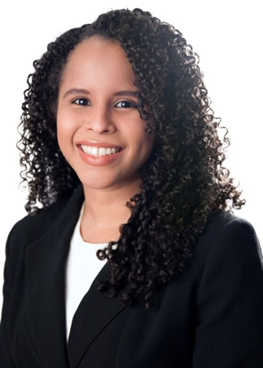
Penelope Martinez Jimenez, MD - PGY-4: I grew up in the Dominican Republic and attended medical school at the Instituto Tecnologico de Santo Domingo. After that, I moved to New York City, where I completed my pediatric residency at the Icahn School of Medicine at Mount Sinai in Elmhurst. I love living in New York and being part of its vibrant community. Here you can truly find anything you dream of, including one of the best libraries in the world. In my time off, I enjoy reading and cuddling with my cat. I am very excited to continue my training in NYC. What I love most about HSS is how close-knit the group is, they make it easy to ask questions and to explore the many opportunities within the interconnected institutions.
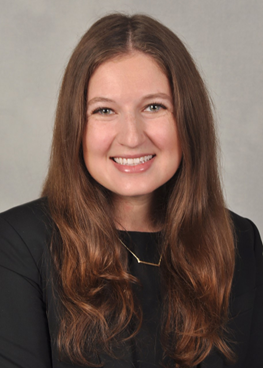
Sarah Ruthen, MD - PGY-4: I grew up about 30 minutes north of HSS in Briarcliff Manor, NY before studying cognitive neuroscience and Spanish at Washington University in St. Louis. I then moved up to Syracuse to attend medical school at SUNY Upstate before completing my pediatrics residency at the Children's Hospital of Philadelphia. I am so excited to be back in New York and to have the unique opportunity to train at one of the best dedicated musculoskeletal hospitals in the world. My clinical interests within rheumatology include risk factors for development of pain syndromes in children as well as CNO. When I am not at the hospital, you can find me going on long walks in Central Park with an audiobook, trying to pinpoint the best slice of pizza in the city, spending time with my husband and ragdoll cat, Sasha, or cozied up with a fall scented candle watching the Eagles play (Go Birds!).
Second Year Fellows

Patricia Hoffman, DO - PGY-5: I grew up in the Philadelphia suburbs. I attended The University of Scranton in Scranton, PA where I ran cross country. I attended medical school at the Philadelphia College of Osteopathic Medicine (with my twin sister) in Philadelphia, PA and completed pediatrics residency at Rutgers Robert Wood Johnson. I am excited to continue my training at a program in New York City and in a musculoskeletal hospital! One of my many interests is clinical research in Juvenile Idiopathic Arthritis. Outside of work, I enjoy exploring all the running trails and parks in New York City.
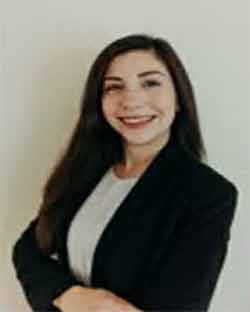
Barbara Pontes Aires, MD - PGY-5: I grew up in a coastal city in northeastern Brazil and attended medical school at the Universidade Estadual do Ceará, before moving to Boston for my pediatric residency at Tufts Medical Center. After a few months working as a fellow at HSS, I can see the commitment to my success and well-being is evident in every aspect of the program, from the thorough educational curriculum, to the excellent mentorship and supportive culture. I'm also grateful for the unique opportunity to train at a referral center for musculoskeletal disease while also being part of a top-tier children’s hospital. I currently live with my husband in Jersey City, and outside of work I'm always excited to explore the different neighborhoods around, check out a Broadway show, or go for a run along Hudson River.
Third Year Fellow

Marissa Dale, MD - PGY-6: I grew up about two hours outside of New York City in a small town known for its apple orchards. I played lacrosse and attended undergraduate at Brown University before moving to Syracuse for medical school at SUNY Upstate. Afterwards, I moved back to NYC for pediatric residency at Columbia/NYP-Morgan Stanley Children’s Hospital and am thrilled to be staying in the city to complete my fellowship at HSS. I am grateful for the unique opportunity to train at a pediatric rheumatology fellowship program that lies both within a dedicated musculoskeletal hospital and a tertiary children’s hospital – there are so many amazing learning opportunities between the two institutions. When I am not at work you can find me running in Central Park or along the Hudson River, visiting farmers’ markets or exploring all of the amazing food the city has to offer.
Our Recent Graduates
The majority of our fellow graduates have gone on to careers as pediatric rheumatologists in academic medical centers across the country. Here is where some of our recent graduates are now:
- Mount Sinai Kravis Children’s Hospital
- University of Utah Medical Center
- Seattle Children’s Hospital
- Westchester Medical Center, Maria Fareri Children’s Hospital
- University of Michigan
- Johns Hopkins University Medical Center
- National Institutes of Health, Metzger Scholar in Translational Research
- Connecticut Children’s Hospital
- University of Wisconsin, Madison
- Hospital for Special Surgery
- Advent Health for Children, Orlando FL
- Nationwide Childrens, Toledo OH
Application Process
Physicians who will have completed an ACGME-accredited pediatrics or med-peds residency program may apply to the pediatric rheumatology fellowship program.
We participate in the National Residency Matching Program (NRMP). Applications should be submitted through the Electronic Residency Application Service (ERAS). For information, please visit the ERAS website.
HSS pediatric rheumatology faculty review all applications. Interview invitations are extended following application review.
Application requirements include:
- Completed ERAS application, including all required documentation.
- At least 3 letters of recommendation, including one from the residency program director.
- Documentation of passing scores for USMLE Steps 1, 2 and 3, or COMLEX Levels 1, 2, and 3 are required for inclusion on rank list.
- ECFMG certificate, if applicable.
Learn about the general application process at HSS.
HSS is an equal opportunity employer and does not discriminate with regard to sex, color, creed, religion, sexual preference or disability.
Salary Information
Fellowship Year 1 = $115,000
Fellowship Year 2 = $ 116,500
Fellowship Year 3 = $ 118,500
If you have any questions, please contact: Flaisa Roberts, Rheumatology Fellowship Program Coordinator at 212.774.2189 or robertsf@hss.edu
Gallery















